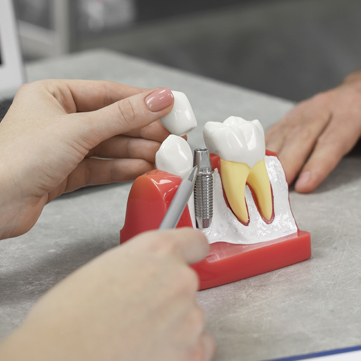Dental sedation helps provide a relaxing and anxiety-free experience if you are fearful of receiving dental treatments. Sedation dentistry lets you visit Terrell Hills Dental to receive dental care even if you are afraid of dental visits. Sedation dentistry techniques help you to avoid the familiar apprehension called dental phobia affecting many Americans.
The Dental Organization for Conscious Sedation, a professional dental body to ensure patients receive safe, comfortable, and anxiety-free dental treatments, states approximately 30 percent of Americans avoid dental visits due to dental phobia. The prevalent dental phobia prevents many from receiving regular dental care to jeopardize the health and functionality of their mouth and smile. The dentist near me recommends sedation dentistry if you are fearful of receiving treatments like dental cleanings and exams or any other therapies hindering the functionality of your teeth and mouth.
Modalities of Sedation Dentistry
The methods of sedation selected by the dentist in San Antonio, TX, vary in purpose and strength. The dentist chooses the sedation dentistry option best suited for your specific requirements, considering the treatments you need. Factors considered are the duration of the procedure and your level of anxiety. The dentist is the optimal professional to determine what sedation level you require. However, if you suffer from severe dental anxiety, you can request more potent sedatives for the procedure scheduled.
Dental sedation is safe and effective to ensure you receive essential dental treatments you have long avoided because of dental phobia. In addition, sedation dentistry relieves your anxiety, making it easier for you to undergo dental treatments without fear. Besides relaxing you momentarily, the sedatives do not affect your brain other than leaving you with little or no memory of your treatment. Therefore questioning whether dental sedation will damage your brain is something you mustn’t even consider. In reality, if you understand the benefits of sedation dentistry, you will likely look forward to your dental appointments and receive essential dental care whenever required from the San Antonio dentist.
How Many Types of Sedation Dentistry Are Available?
Sedation dentistry in San Antonio, TX, provides different types of dental sedation after considering the treatment you are undergoing, your level of dental anxiety, and your entire medical history. The dentist does not provide any sedatives unless they are convinced your treatment cannot proceed without dental sedation. The types of sedation dentistry available are as follows:
- Anxiolysis: the definition of anxiolysis is mild or minimal sedation to relieve your dental anxiety. The most common type of anesthesia requested by most people with anxieties about their procedure is inhalation analgesia, also called nitrous oxide or laughing gas. Laughing gas is administered via a small mask placed over the nose delivering nitrous oxide with oxygen before and throughout the treatment. Pills also help create a feeling of anxiolysis. However, you must provide your dentist with any current medical conditions or past drug use to ensure they select appropriate medications.
- Moderate Sedation: a depressed level of consciousness defines moderate sedation indicating you can breathe independently, respond to verbal and physical stimulation, and retain your reflexes. Oral conscious sedation is most often associated with sedation dentistry delivered via oral medications before your appointment. The drugs diminish the awareness of pain, sounds, and smell. You receive instructions to take the medications an hour before your appointment and have a caregiver accompany you when driving to the dentist’s office for any scheduled procedure.
- Intravenous Sedation: You may feel you are asleep with intravenous sedation. The route of administration is the only difference between intravenous and oral sedation. Intravenous sedatives are delivered by injections and are instantaneously effective. Amnesia is a common side effect of intravenous and oral sedation that makes you believe your procedure lasted for a few minutes when you may have spent hours in the dentist’s chair.
- General Anesthesia: If you are unsuitable for sedation dentistry but need a surgical procedure, the dentist decides to use general anesthesia, not considered sedation dentistry.
Various Types of Risks in Sedation Dentistry
The safety of sedation dentistry remains undisputed as many people benefit from the techniques used by dentists to provide comfortable and anxiety-free treatments. However, some risks do exist with anesthesia. It is why dentists request your medical history to determine whether you are suitable for dental sedation.
If you are obese or suffer from sleep apnea, it helps to discuss the problem with the dentist because the risk of complications developing from sedation exists. Besides the above, sedation dentistry is entirely safe and is an option worth considering, especially if you are avoiding essential dental treatments to compromise your oral health.






